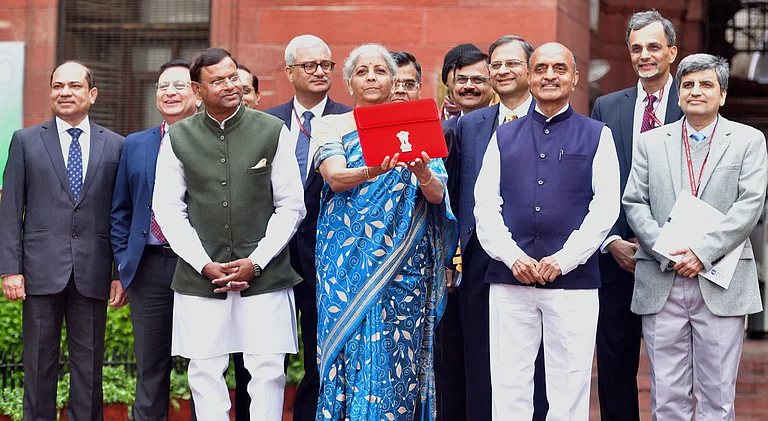Chief Economic Adviser V Anantha Nageswaran on Wednesday said there was a high possibility of GDP growth touching 8 per cent in FY24 on the back of robust growth registered during the three quarters of the financial year ended March 2024.
India's gross domestic product (GDP) grew 8.4 per cent in the third quarter ended December 2023. In the second quarter, the GDP growth was 7.6 per cent while 7.8 per cent in the first quarter.
"The IMF has projected a growth rate of 7.8 per cent for FY24. But if you look at the trajectory of growth in the first three quarters, obviously, the possibility that the growth rate touches 8 per cent is quite high," he said at an event organised by NCAER here.
This is higher than RBI's estimate of 7.5 per cent growth for the Indian economy in 2023-24.
For the ongoing financial year, he said, the International Monetary Fund has an estimate of 6.8 per cent but the Reserve Bank of India expects a 7 per cent GDP growth for FY25.
"If that materialises, of course, it will be the fourth consecutive year after COVID starting from FY22 that the economy will have grown at 7 per cent or more. The RBI forecasts of 7 per cent for FY25 turns out to be either correct or even underestimate, then it would be the fourth consecutive year of 7 or higher growth rate," he said.
However, he said, a lot would depend on how the monsoon shapes up. Although the expectations are that there will be an above-normal monsoon, spatial and temporal distribution will matter.
On the growth beyond FY25, he said, there is a possibility of India growing between 6.5-7 per cent because the key difference this decade compared to the last is the one of balance sheet strength in the financial sector and the non-financial sector in the corporate sector as well.
The investment made in supply-side augmentation of both physical and digital infrastructure has placed the economy to pursue non-inflationary growth, he said, adding that this also helps absorb the challenge of overheating.
He also said that the household sector's net financial savings flows were lower in 2022-23 at 5.1 per cent due to the bulk of savings shifting to real sectors.
Asked about the RBI's recent circular on under-construction infra project financing, he said, this is draft guidelines and would not like to comment.
The Reserve Bank of India (RBI) last week proposed to lenders that they set aside higher provisions for under-construction infrastructure projects and asked them to ensure strict monitoring of any emerging stress.
As per the draft norms, the RBI proposed that lenders set aside a provision of 5 per cent of the loan amount. This will be reduced to 2.5 per cent once a project is operational.
Currently, lenders are required to have a provision of 0.4 per cent on project loans that are not overdue or stressed.































